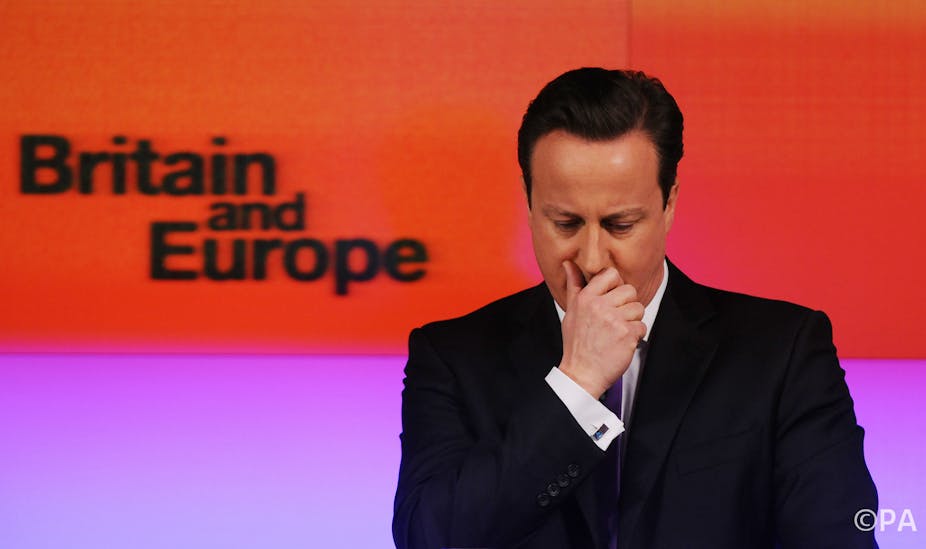As the British general election approaches, the question of Europe becomes ever more prominent in the campaign.
Donald Tusk, the President of the European Council announced on Sunday 15 March that despite wanting to help Cameron renegotiate with EU partners, he is sceptical when it comes to EU treaty change. Treaty change is difficult as it would require consensus by another 27 members states, which as Tusk said would be like “opening the Pandora’s box”.
This announcement is a major blow to Cameron who has promised a referendum on British membership of the EU will be held in 2017 should he become prime minister following the upcoming election. Cameron’s pre-electoral campaign has focused on the question of Europe. His party has committed to a new relationship with Europe, which includes the renegotiation of British membership of the EU and repatriation of powers back to Britain from Brussels.
Tusk’s statement reveals the practical difficulties associated with Cameron’s pledge. It also indicates that – at least for now – there is little appetite in Europe for substantive discussion of the UK’s place in the EU. The focus of European institutions is on a Grexit rather than Brexit. Whether Greece would choose to, or be forced to, abandon the euro is of primary importance at it may have an impact on the future of the eurozone itself. While Brexit is also a priority and the EU commission claims that it would be a “disaster”, it is not tied to the eurozone and reveals a divide between countries that use the euro and those that do not.
Yet David Cameron’s insistence on holding the referendum has one advantage: it enables him to differentiate himself from Ed Miliband without taking a stance on whether he supports the ‘yes’ or ‘no’ to the EU. Miliband’s strategy is somewhat contradictory as on one hand he argues that there is an “overwhelming economic case” for EU membership, but on the other, the party pledges that immigrants will not be able to claim benefits for at least two years, a policy that may go against EU rules.
Thus in the current pre-electoral landscape the question of Europe does not only divide the established parties from the more marginal parties. It has also become a source of division between the Conservatives and the Labour party.
Given the weakness of the three main parties, the rise of UKIP and the continuous strength of the SNP in Scotland, 7 May is one of the most unpredictable elections in British history. Issues such at the EU are very likely to affect vote choice.
The most recent YouGov poll on voting intention places the Labour party just ahead of the Conservatives. Given the fluctuations in public opinion, however, it remains to be seen which EU strategy woos the public.


